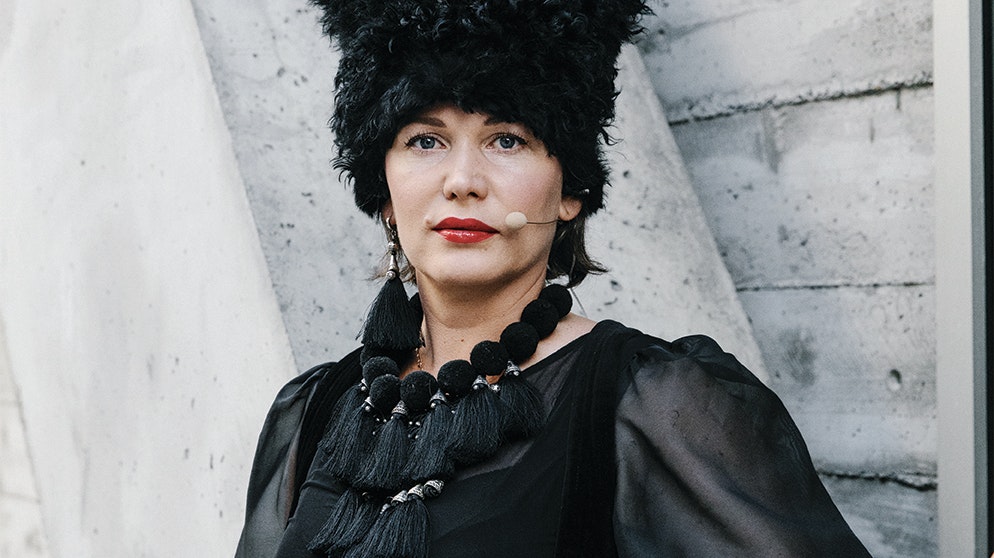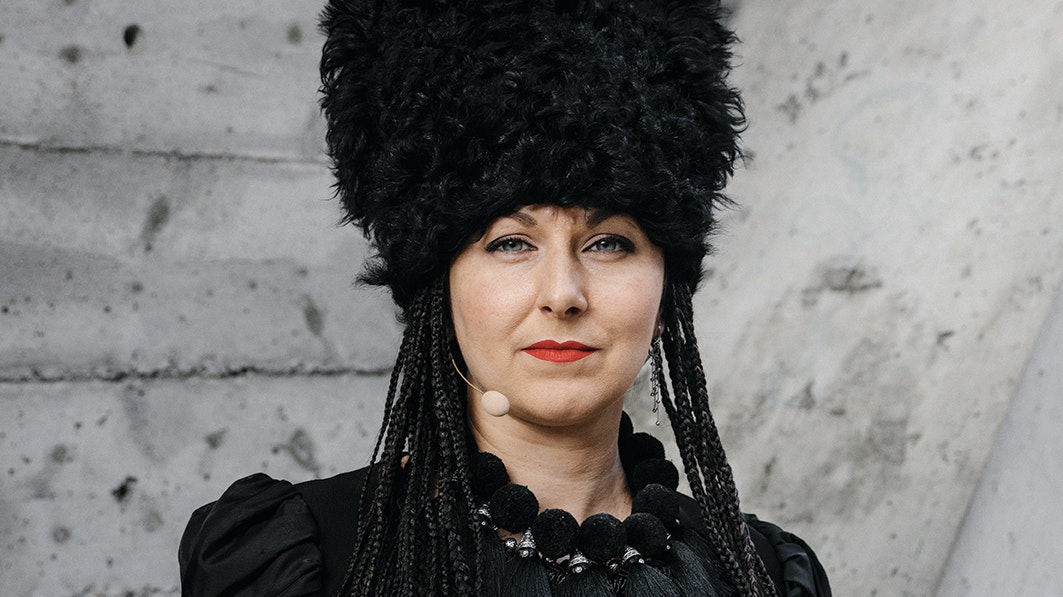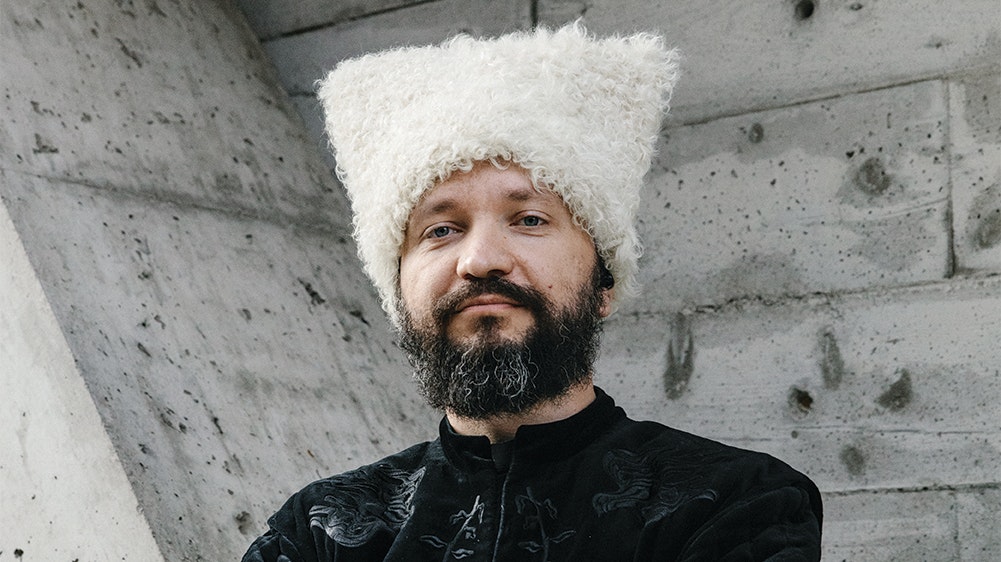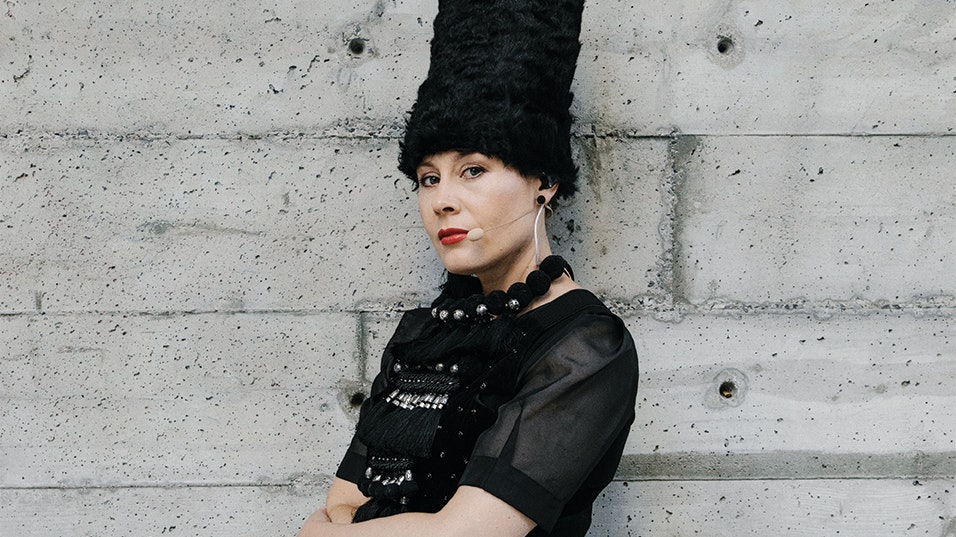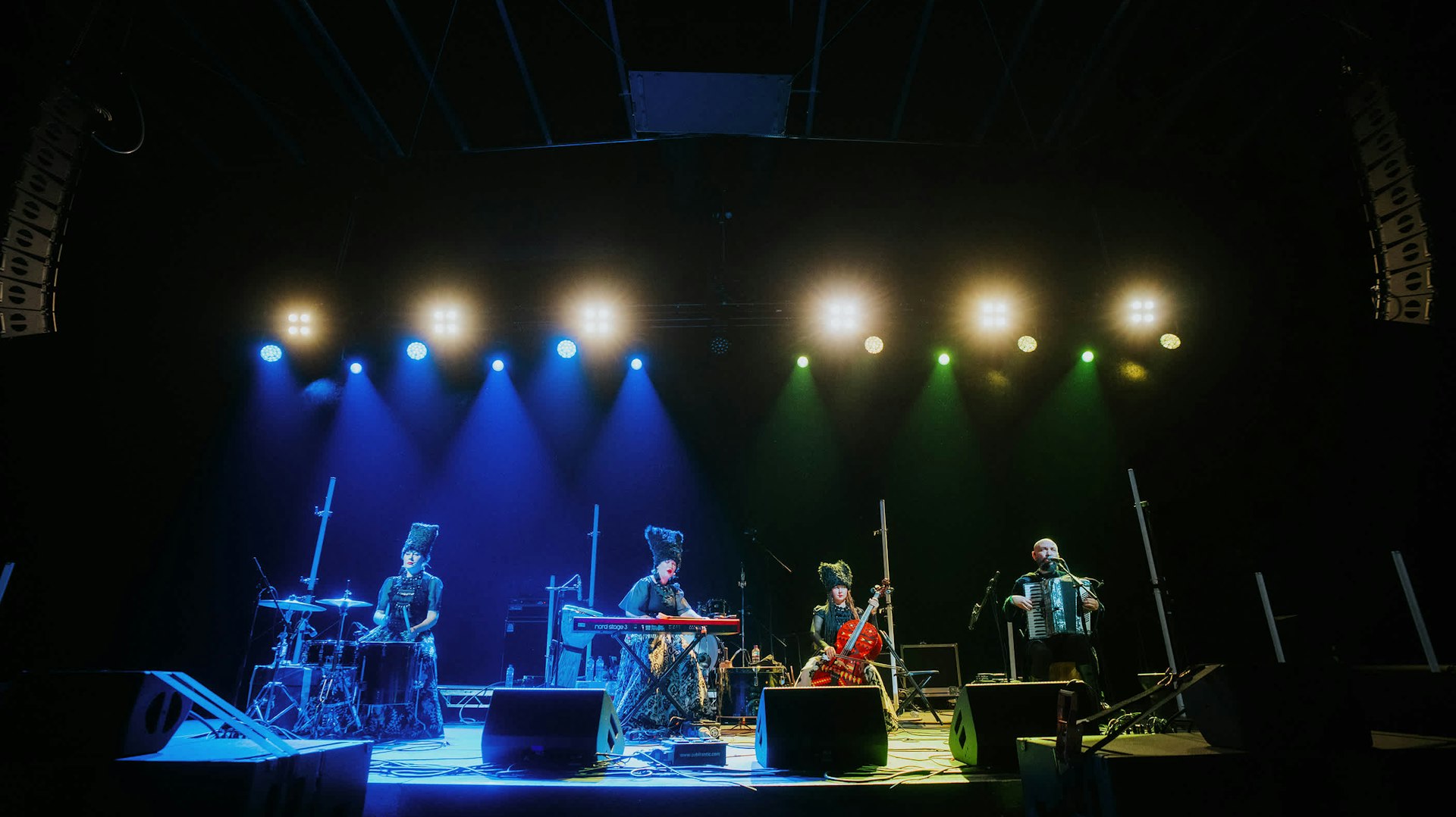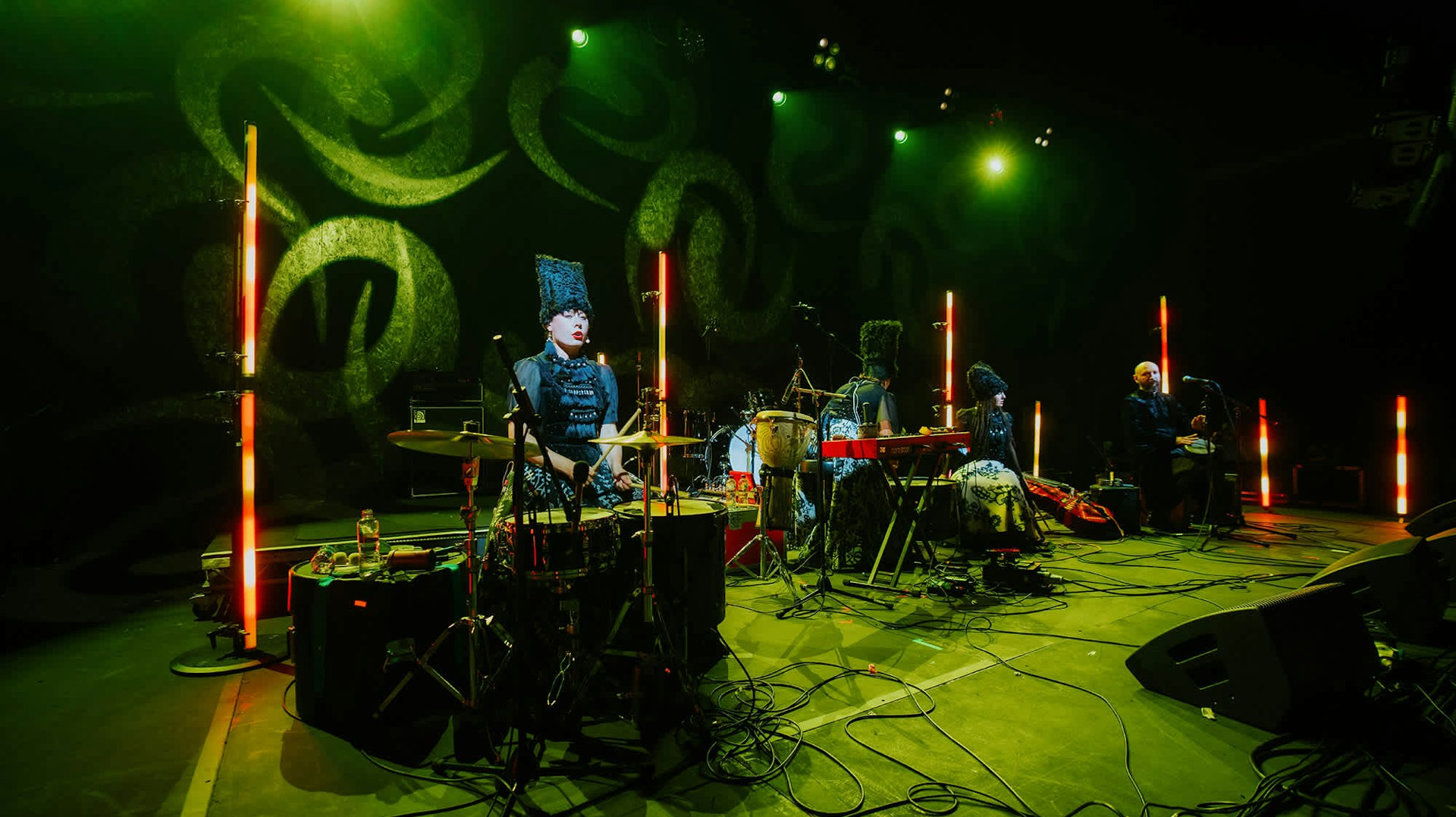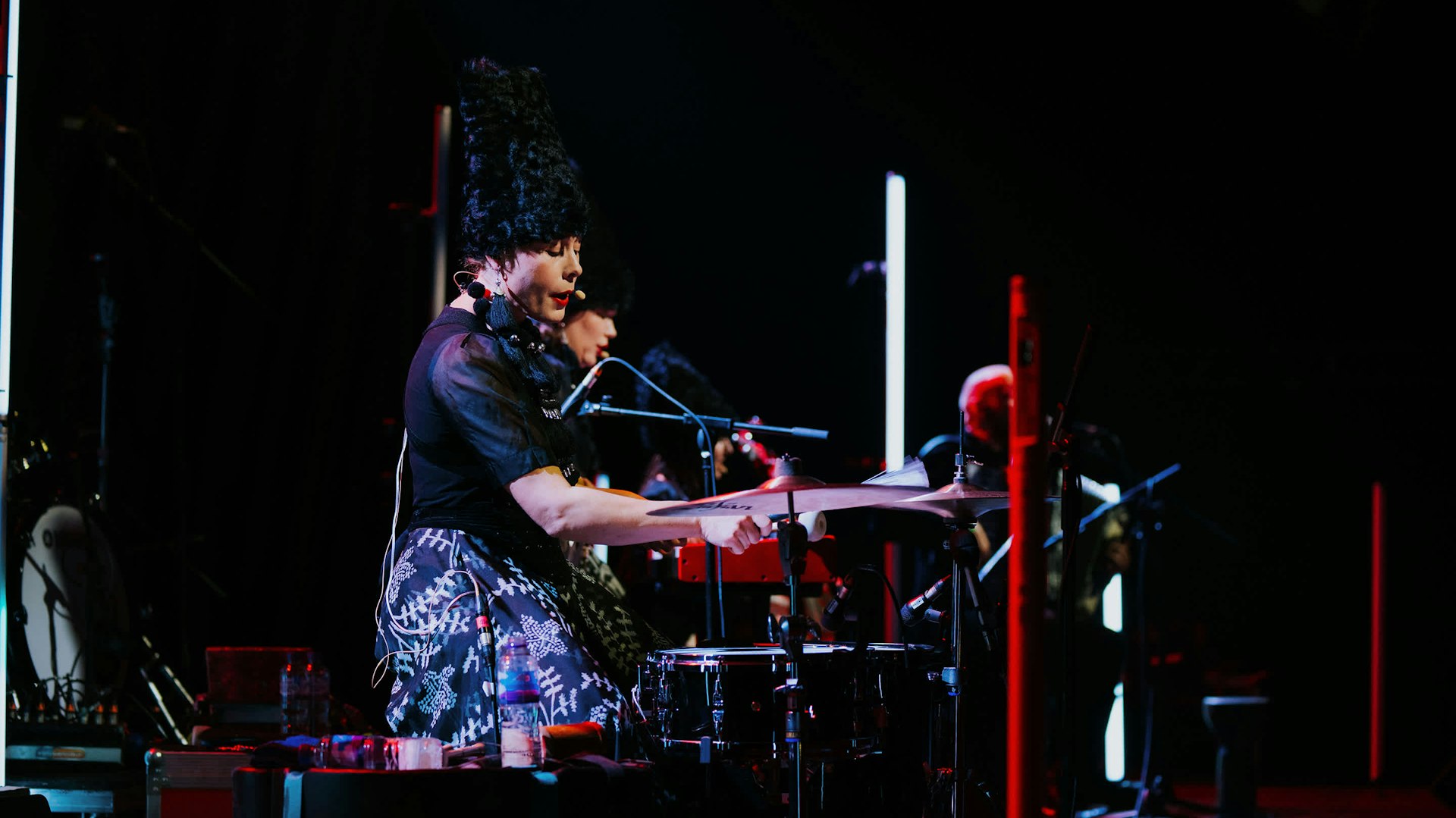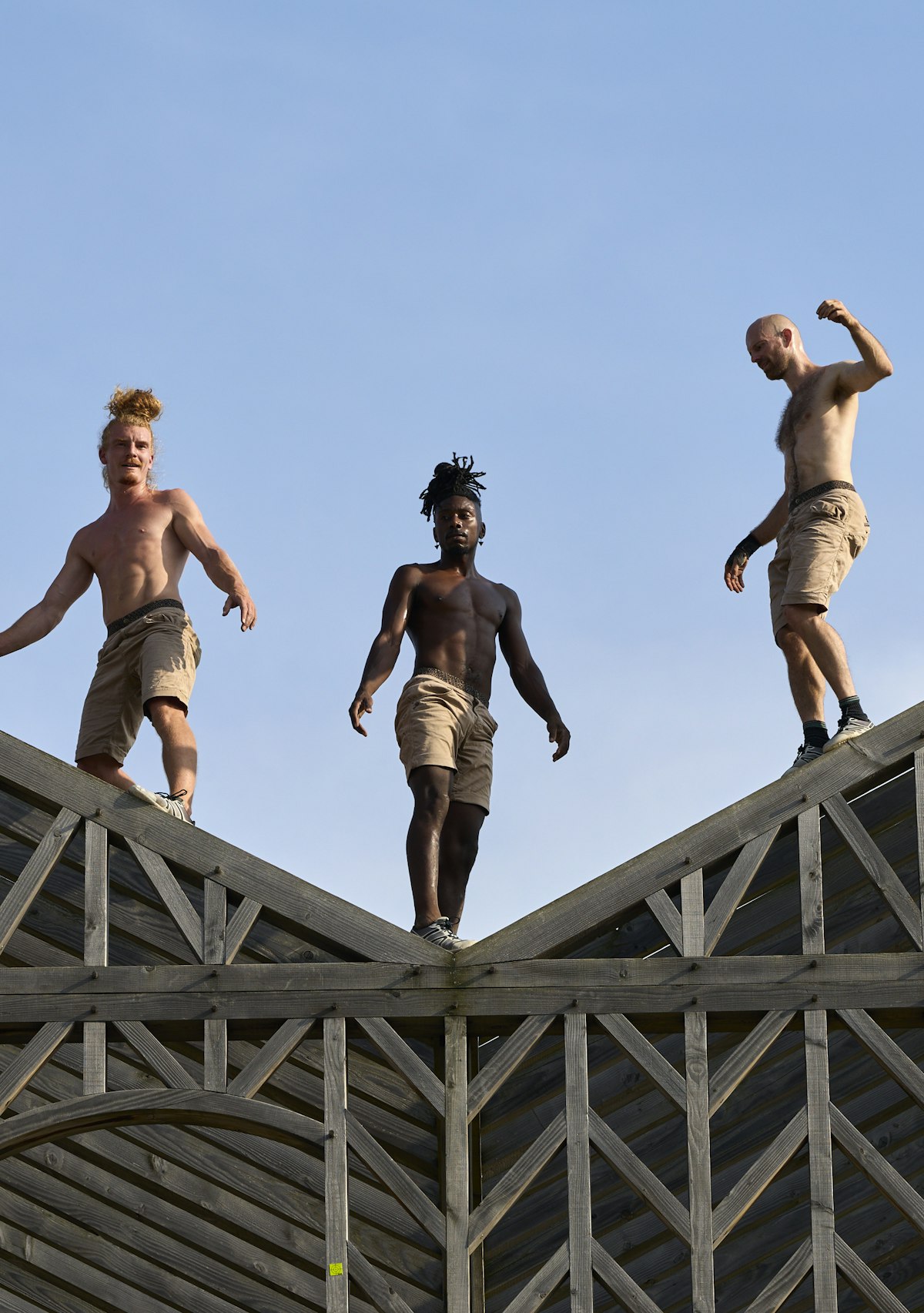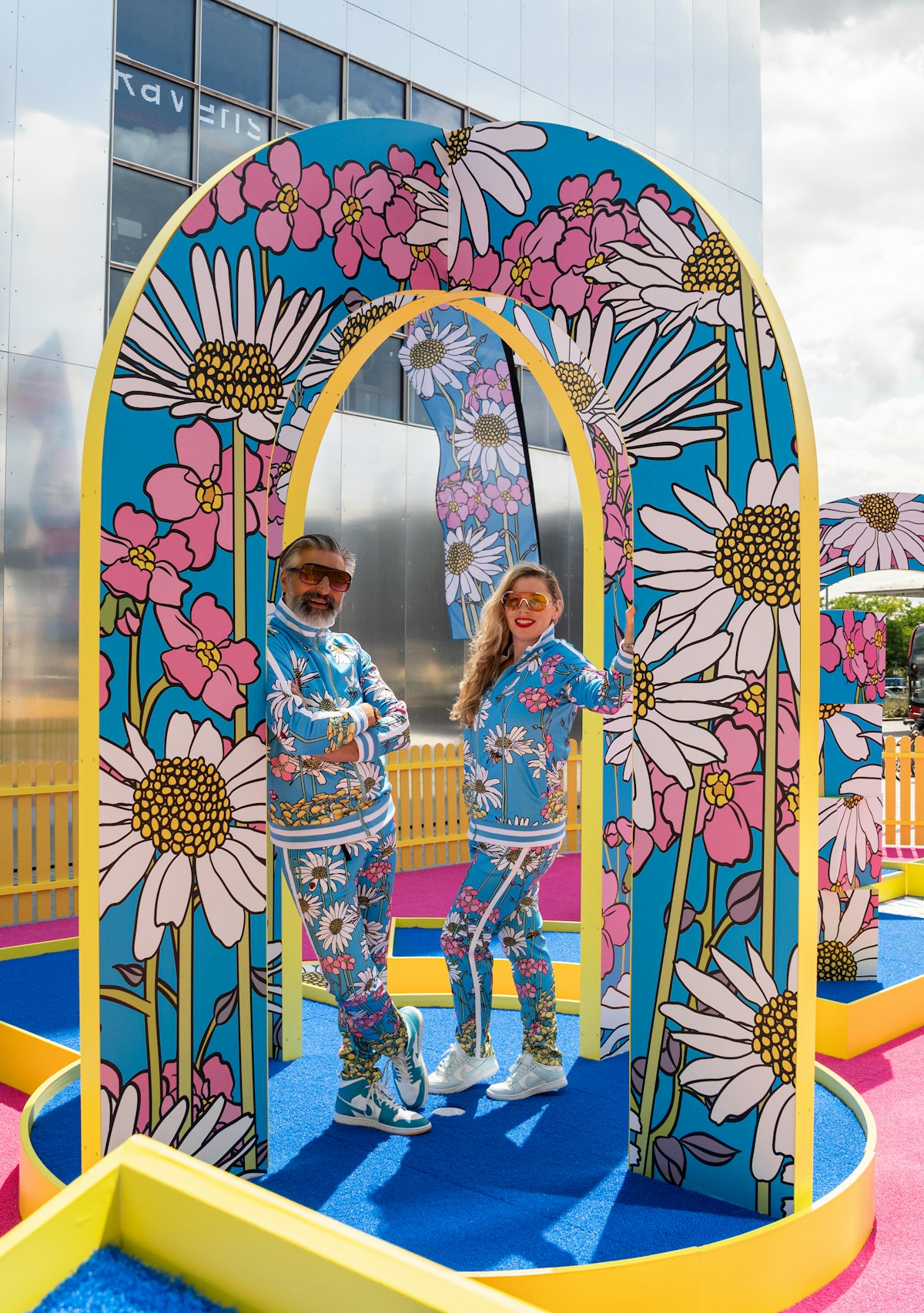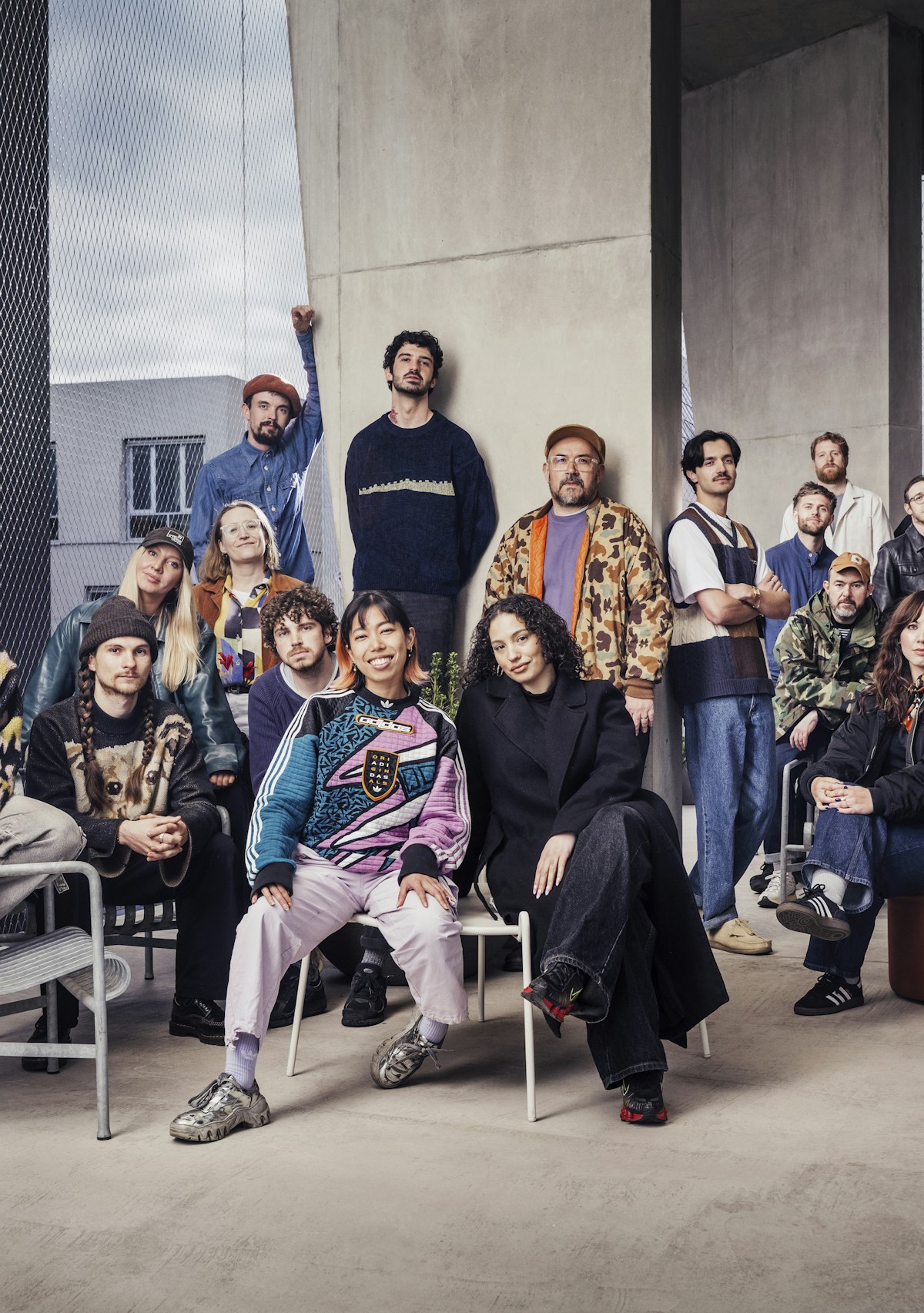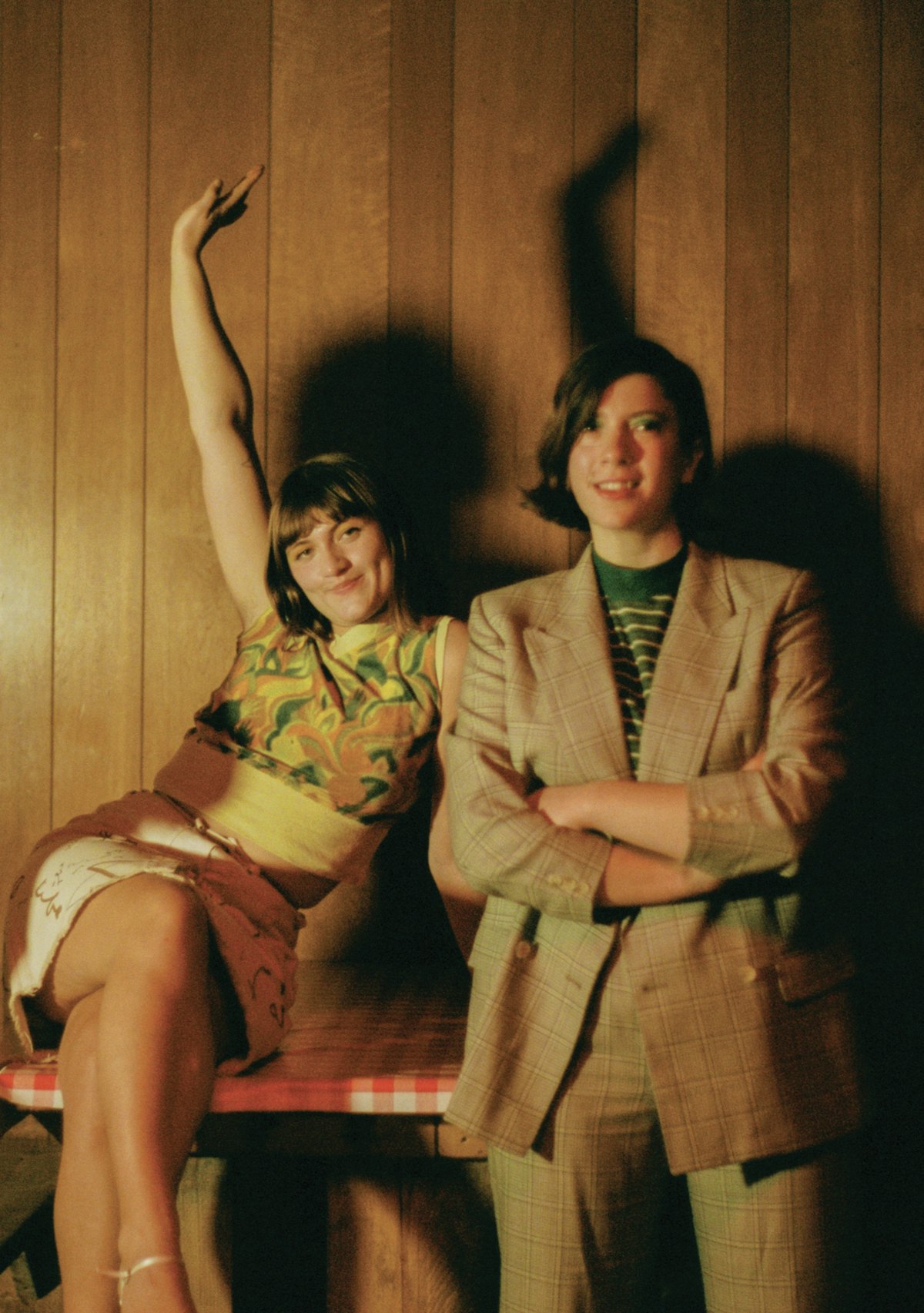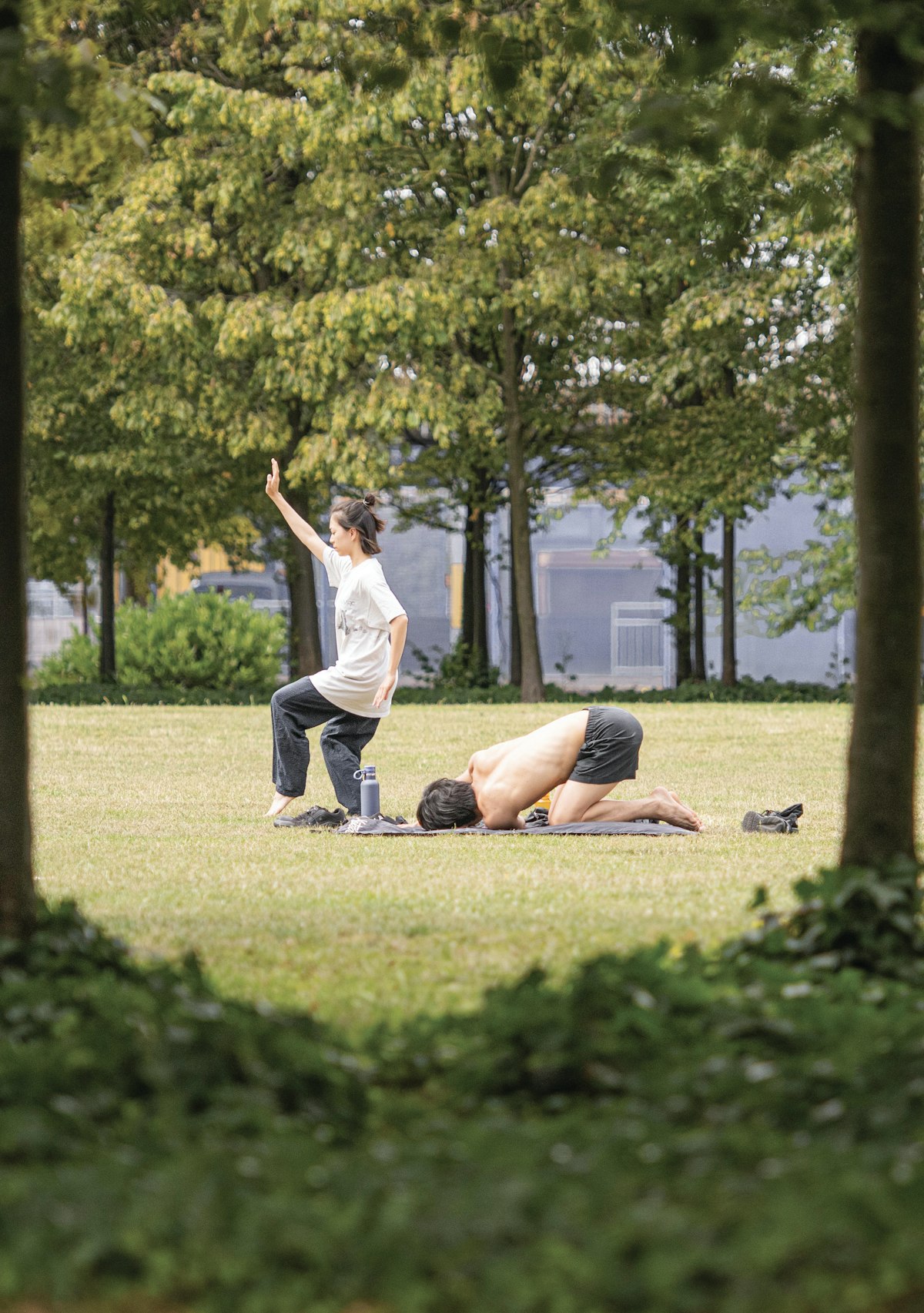
Stop Putin! No War!
As DakhaBrakha hit the road for a relentless tour of Europe and North America, their message to the world is simple.
Folk music in Britain is often served with a heavy dose of nostalgia. Our folk songs tend to recall an idealised picture of rural life that never truly existed, erasing our complex history with the land and dismissing work songs and other forms of urban secular music that have been performed in towns and cities since the industrial revolution. The folk revivalists of the 1950s and 60s — acts like Lindisfarne, Steeleye Span, The Watersons and Fairport Convention — fell into the same trap as their predecessors, resurrecting a rose-tinted and slightly ridiculous musical canon that did little to reflect the reality of British life.
As a result it’s hard for us to think of folk music as a political genre (though a few folk revivalists were staunch trade unionists and socialists) and it would be difficult to argue that any British folk music plays a role in shaping our national identity today. But for Ukrainian folk quartet DakhaBrakha, folk music is a deeply political art form and a galvanising force in the fight to preserve a uniquely Ukrainian identity that’s under immediate threat.
In our country, they say that the Ukrainian folk song is the code of the nation, or even its talisman;” says Marko Halanevych, one of the band’s founding members, “a part of our identity, as a manifestation of culture. We rely on the Ukrainian folk song traditions because they are a part of ourselves. We can play or experiment with different genres, styles, sounds, but we will always remain Ukrainians in our head.”
This need to preserve Ukraine’s culture is particularly acute for Halanevych at this moment, eight years into the Russo-Ukrainian war and 165 days into a full-on Russian invasion, but it is a necessity that his ancestors would well understand. Ukraine has always been a contested nation – subsumed by numerous empires and republics for almost 400 years until it gained independence after the fall of the Soviet Union in 1991 – its culture constantly under attack. Under Stalin, the eradication of Ukrainian national identity was a key strategic › imperative, but he was not the first to attempt it. In the 19th Century the Russian chauvinists banned the publication of Ukrainian books, the performance of Ukrainian plays and the teaching of the Ukrainian language.
Stalin took this even further, making changes to the spelling and grammar of the Ukrainian language to make it more like Russian in order that it could be assimilated entirely once he had destroyed Ukraine’s independence movement and broken the nation’s spirit. What began as an insidious attack on Ukraine’s culture culminated in a very direct attack on its people; a man-made famine, the Holomodor, that killed around 5 million Ukrainian citizens.
DakhaBrakha are something of an anomaly even in the Ukrainian folk scene. Formed in 2004 to be the house band of the experimental Dakh theatre company in Kyiv, the four-piece is comprised of Marko Galanevych, Olena Tsybulska, Iryna Kovalenko and Nina Garenetska. Formally trained in Ukrainian folk singing, Tsybulska, Kovalenko and Garanetska had never picked up an instrument until joining the band, which has had a profound influence on their musical style; Halanevych describes it as “very naive, minimalist. It’s not virtuoso.”
Virtuoso or not, the band has enjoyed some commercial success in Europe and the USA. In 2017, their song Sho Z-pod Duba (an energetic staccato number about a stubborn horse that refuses to drink for his master) was used in the opening sequence of an episode of the Cohen Brothers’ Fargo. Later that year it was used on a TV ad to launch David Beckham’s then new skincare range for men. For Halanevych, these commercial uses of the band’s music give Ukraine folk music renewed relevance in the modern world.
While DakhaBrakha’s sound has evolved over the years, its core has remained constant, merging cello, Garmoshka (Ukrainian accordion) and Zhaelika (a single-reed horn that produces a sound somewhere between an oboe and a mediaeval crumhorn), polyrhythmic percussion and a vocal style known academically as “white voice” that can be found in varying forms in many Eastern European folk traditions. The majority of their lyrics are taken from long-forgotten Ukrainian folk songs.
In spite of deeply traditional building blocks, the resulting sound is anything but. The cello, for example, is played in a tuning of Garenetska’s own invention. Having never picked up the instrument until joining the band, she had no idea how it should be tuned, and the band has worked around this unusual constraint ever since. Since 2010 they have merged multiple genres into their oeuvre, incorporating western pop, Reggae, African drumming and didgeridoo into a sound that has been described as “ethno-chaos”.
Since the Russian invasion began in early 2022, the threat to a Ukrainian cultural identity and way of life looms large again. Official figures indicate that the number of people internally displaced by the war already exceeds 11 million – more than a quarter of the country's population. “We have been doing this for the last 400 years,” says Halanevych. “Every nation has the right to preserve its identity.” For DakhaBrakha, that means sharing Ukraine’s traditional music and storytelling with as large an audience as possible.
And that’s why they’re on the road again, touring extensively in Europe and across North America, selling out headline shows and taking prime slots at jazz and folk festivals. They’ve even played a set on Glastonbury’s legendary Pyramid Stage, warming up the crowd for Diana Ross’ set with cries of “Stop Putin! No War!” The set was a “huge responsibility and challenge for us,” says Halanevych.
“This year we performed on the main stage, which was twice as important. We know that Sir Paul McCartney once again supported Ukraine by raising the yellow-blue flag on stage. What was even nicer was that four Ukrainian bands performed at Glastonbury at once. Here we want to thank the Armed Forces, because if they had not stood up in the first weeks of the war, and Ukraine had become a Russian colony again, no one in the world would have talked about Ukrainian music or Ukraine in general.”
Leaving Ukraine to play live again was not an easy decision. After two years of being stranded at home due to Covid, the band were excited to take their new material on tour when restrictions eased. But now the anxiety of leaving friends and family behind weighs heavy. “The fact that Putin’s troops are killing Ukrainians is our daily pain,” says Halanevych. “We are not in Ukraine, but mentally and emotionally we are constantly there.”
Halanevych recalls the confusion of the first days of the invasion. “We all woke up early on February 24th because we had to go to a concert in the city of Khmelnytskyi. Driving to the station in the morning, I saw flashes in the dark sky. The thought came to mind that it could be a war; they had been talking about this for several months. I stopped and started looking at news sites and Facebook, but it was the very beginning and no one had written anything yet.
My heart began to pound and burst out of my chest. I asked in our group chat if anyone else could see flashes over Kyiv. No one else saw, but they had heard them. It became clear that the concert had to be cancelled that day.”
In the first weeks after the invasion, says Halanevych, all civilians felt numb. “There was no understanding how long it would last, what you should do, how to be with your family.” As a result, everything cultural disappeared for a time. But after a few months, “people started listening to music, watching movies or reading fiction again. Later there were concerts in bomb shelters. For some people, only art helped them to stay conscious and not fall into a depression.”
For Halanevych, taking DakhaBrakha’s art to the world at this time is a radical and hopeful act. “Thousands of people come to our concerts around the world and thank us for these experiences and emotions,” he says. “So our music is valuable and necessary.” Don’t expect to find any overt politics in the band’s lyrics though: “DakhaBrakha hardly ever writes lyrics for our songs. Most of them were written by our ancestors many years ago.” Rather it’s the simple act of showing Ukrainian culture to the world that means, “every one of our concerts abroad can be regarded as a political act in itself.”
Not only that, “but we can talk about important things from the stage, or just share our viewpoints. We can express our opinion in an interview or choose a certain strategy of behaviour,” says Halanevych.
Typically, a DhakhaBrakha performance is characterised by its raw energy. The quartet are renowned for their febrile live sets that veer wildly between “moody and atmospheric” and “exuberant and percussive” inviting their audiences to revel in their chaotic mix of sounds. On their current tour, however, that chaos and exuberance has been tempered to reflect the severity of the war in Ukraine, with all the proceeds raised from live shows going directly to funding the Ukrainian army.
“Our program has undergone changes,” says Halanevych. “It is difficult for us now to play entertaining and cheerful compositions. In fact, there are tracks dedicated to those who died because of Russian aggression and to people who defend our freedom. We have started using video art, presenting reflections and a visual reinterpretation of the theme of war.”
Their live performances may have taken on a more sombre tone and more overt political messaging, but if recent shows are anything to go by, the ‘ethno-chaos’ that drives the band’s onstage presence is still very much intact. First and foremost the quartet are still delighted to be playing in front of such large audiences.
“When we started in our small theatre with 50 seats, we couldn’t even begin to think that we would have big tours around the world and be able to carry our culture somewhere beyond Kyiv. But the level of ambition grew in proportion to the number of tours.” You can bet that by the end of the year hundreds of thousands more people will know the name of DakhaBrakha and their quest to elevate Ukrainian culture.
